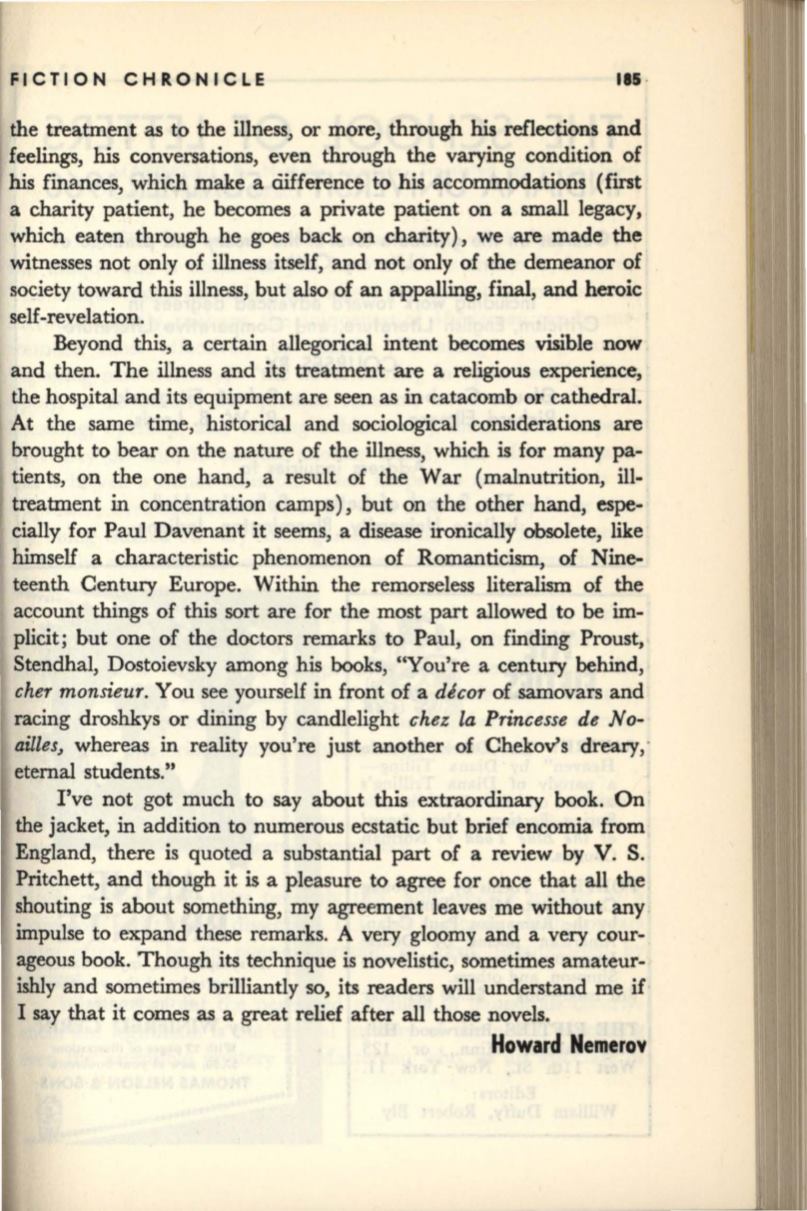
FICTION CHRONICLE
115 ·
the treatment as to the illness, or more, through
his
reflections and
feelings, his conversations, even through the varying condition of
his
finances, which make a ciifference to his accommodations (first
a charity patient, he becomes a private patient on a
small
legacy,
which eaten through he goes back on charity), we are made the
witnesses not only of illness itself, and not only of the demeanor of
society toward this illness, but also of an appalling, final, and heroic
self-revelation.
Beyond this, a certain allegorical intent becomes visible now
and then. The illness and its treatment are a religious experience,
the hospital and its equipment are seen as in catacomb or cathedral.
At the same time, historical and sociological considerations are
brought to bear on the nature of the illness, which is for many pa–
tients, on the one hand, a result of the War (malnutrition, ill–
treatment in concentration camps), but on the other hand, espe–
cially for Paul Davenant it seems, a disease ironically obsolete, like
himself a characteristic phenomenon of Romanticism, of Nine–
teenth Century Europe. Within the remorseless literalism of the
account things of this sort are for the most part allowed to be im–
plicit; but one of the doctors remarks to Paul, on finding Proust,
Stendhal, Dostoievsky among his books, "You're a century behind,
cher monsieur.
You see yourself in front of a
decor
of samovars and
racing droshkys or dining by candlelight
chez la Princesse de N
0-
ailles,
whereas in reality you're just another of Chekov's dreary, ·
eternal students."
I've not got much to say about this extraordinary book.
On
the jacket, in addition to numerous ecstatic but brief encomia from
England, there is quoted a substantial part of a review by V. S.
Pritchett, and though it is a pleasure to agree for once that all the
shouting is about something, my agreement leaves me without any
impulse to expand these remarks. A very gloomy and a very cour–
ageous book. Though its technique is novelistic, sometimes amateur–
ishly and sometimes brilliantly so, its readers will understand me if
I say that it comes as a great relief after all those novels.
Howard Nemerov


